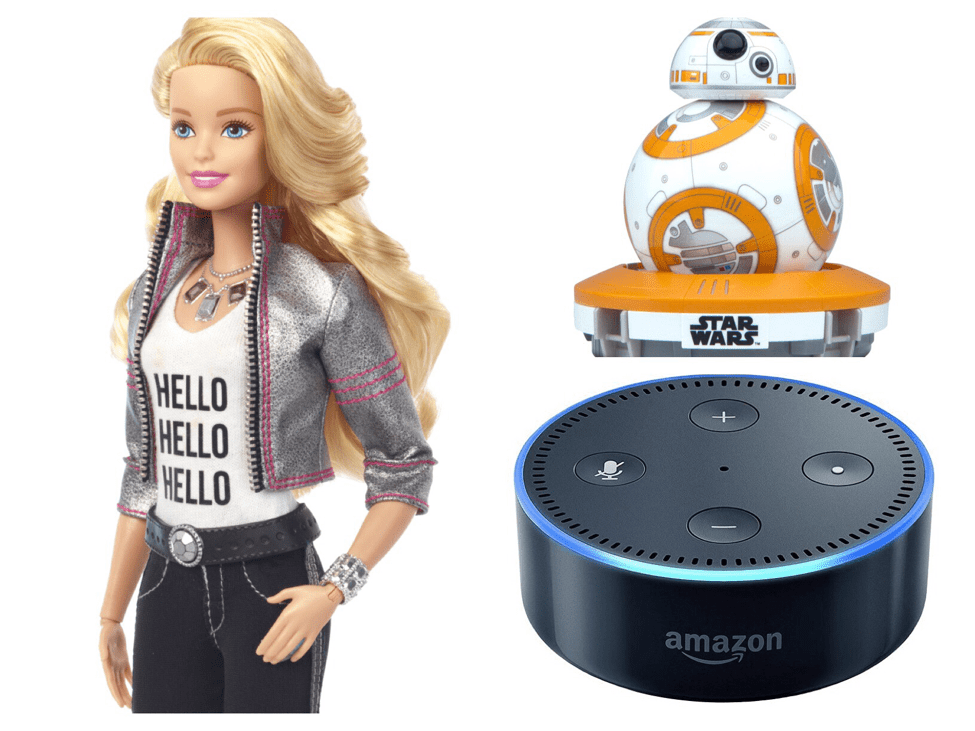This is exactly what I was talking about in reference to the Echo. When I was working with Cabela’s, I would have paid for data gathering capabilities like this. And imagine how much more effective Amazon’s cloud server farm could be than Mattel’s Barbie® Doll.
The demand for this data is too strong. You can hold the Mississippi river back for only so long before the pressure will bust through. Right now, while the public is leery of losing their privacy, Amazon needs to grow their market penetration without spooking their prey. Later, little by little, they’ll start to dial back on their privacy policy to make money on this gold mine.
So, I wonder what Amazon is going to do with their data once the honeymoon stage is over? Being the corporate type who understands creative uses for this kind of data gathering, I’ll never have an Echo in my house. But if everyone else wants to freely hand over their data. I’d gladly put it to good use, soothing my conscious by telling myself I warned everyone. So don’t blame me.
But one scenario immediately comes to mind. There was a BB-8 toy that came out about a year ago that had the capacity to react to the movie Star Wars: Episode VII – The Force Awakens. Based on the dialogue in the movie, BB-8 would react to the movie as it watched along side of you.
The technology already exists to listen for specific dialogue and then execute a desired command. For BB-8, the command was a response to the movie. But that command could be to record and catalog whatever follows in the immediate few seconds following.
If I owned the Amazon Echo platform, I would love the ability to introduce a television ad campaign and then harvest and categorize the reactions of the people who watched it. With the rise of DVRs, there are a lot of questions on how many people actually view your commercials. With an eavesdropping Echo, you could bypass all doubt and get ironclad results.
Let's say that you have a summertime blockbuster movie and want to gauge consumer interest. This would help you decide how much inventory to produce for merchandising or money to spend on advertising. You could program Alexa to spring to attention when it hears the specific wording of the commercial that you have scheduled to debut during the Super Bowl. You’re much more likely to glean verbal feedback during a time when people are congregating at parties.
After being activated by the commercial dialogue, Amazon could then create a Rotten–Tomatoes-like index based on the number of positive and negative reactions that it heard during the commercial or the ten seconds immediately following.
It wouldn’t be too hard. Most people are fairly predictable in their language. If Alexa heard phrases or specific key words like:
- Looks awesome
- Gotta see that
- Can’t wait
On the other hand, if Alex recorded phrases that contained words along the lines of:
- Sucks
- Stupid
- Dumb
Would it be perfect? Probably not, but it would be directionally correct. And Amazon would have an amazing window into the American public’s predisposition into whether they like something or not. This level of intelligence far surpasses Google’s search data for specificity and breadth. When most people like or dislike a product, they aren’t going to get on their phone or tablet and conduct web searches on it. But Alexa could capture casual feelings and first reactions. I can’t overstate how valuable this information would be.
I use a movie as an example, but you could apply it to just about anything. Launching new products, gauging true TV show ratings, fielding potential political candidates by specific state, or even public views on legislative issues.
And if you doubt what I'm saying about how much more powerful the instant verbal feedback is over a web search, consider this one nugget of truth: Google just launched their own counter-top voice assistant this year.



 RSS Feed
RSS Feed